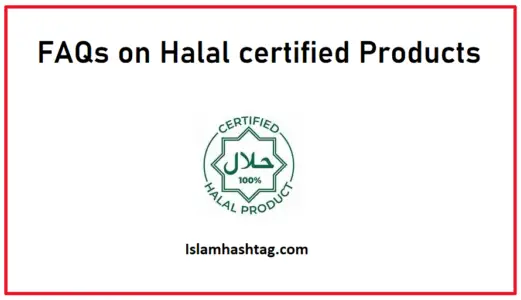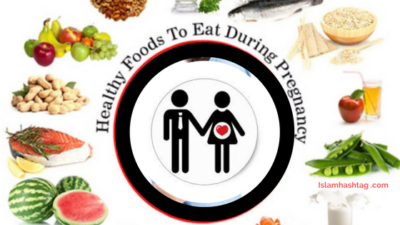FAQ on Halal Certified Products: Everything You Need to Know
In today’s diverse and multicultural society, the demand for halal certified products is on the rise. Halal, an Arabic term meaning “permissible,” refers to products and practices that comply with Islamic dietary laws. With the increasing interest in halal products, it’s essential to address common questions and misconceptions surrounding their certification. This article aims to provide a comprehensive FAQ on halal certified products, offering clarity and understanding for consumers.
Learn more about- halal makeup
- What does “halal” mean?
“Halal” is an Arabic term that translates to “permissible” or “lawful.” In the context of food and other consumer products, it refers to items that are permissible for Muslims to consume or use, according to Islamic dietary guidelines.
- What are the guidelines for halal certification?
Halal certification involves complying with specific guidelines derived from Islamic law. These guidelines encompass various aspects, including the sourcing, processing, handling, and packaging of products. Key requirements include:
a. The absence of pork and pork by-products.
b. The exclusion of alcohol and intoxicants.
c. Adherence to specific animal slaughter practices (Zabihah), including the use of a sharp knife to minimize animal suffering.
d. Avoiding cross-contamination with non-halal products during manufacturing or storage.
e. Ensuring the absence of any prohibited ingredients, such as gelatin derived from non-halal sources.
- Who provides halal certification?
Halal certification is typically granted by recognized Islamic certification bodies or organizations. These entities have experts who evaluate and verify that products meet the required halal standards. The certification process involves audits, inspections, and thorough assessments of manufacturing facilities, ingredients, and production methods.
Some well-known international halal certification organizations include:
- Islamic Food and Nutrition Council of America (IFANCA): Based in the United States, IFANCA is one of the leading halal certification organizations worldwide.
- Halal Certification Services (HCS): This organization is based in the United Kingdom and provides halal certification for a wide range of products and services.
- Malaysia Halal Certification Authority (JAKIM): JAKIM is the main halal certification authority in Malaysia and is recognized globally for its stringent standards.
- Majlis Ugama Islam Singapura (MUIS): MUIS is the Islamic Religious Council of Singapore and provides halal certification for products and establishments in Singapore.
- Halal Development Council (HDC): This organization provides halal certification in Pakistan and is endorsed by the government.
- Australian Federation of Islamic Councils (AFIC): AFIC is responsible for halal certification in Australia and is widely recognized within the industry.
- Is halal certification only relevant to food products?
While halal certification is primarily associated with food products, it also extends to various other consumer goods. This includes cosmetics, personal care items, pharmaceuticals, food additives, and even services such as catering or restaurants. Halal certification ensures that these products and services align with Islamic principles and are free from prohibited substances.
- Are halal certified products limited to Muslim consumers only?
No, halal certified products are not exclusively for Muslim consumers. While the primary purpose of halal certification is to cater to Muslim dietary requirements, anyone can choose to consume or use halal certified products. Halal certification provides transparency and reassurance to consumers, including those who may have dietary restrictions, ethical considerations, or prefer products with higher quality standards.
- How can I identify halal certified products?
Identifying halal certified products can be made easier by looking for specific signs and symbols that indicate the product’s compliance with Islamic dietary guidelines. Here are some ways to identify halal certified products:
- Halal Certification Marks or Logos: Look for a halal certification mark or logo on the packaging of the product. These symbols are usually provided by reputable halal certification organizations and indicate that the product has been certified as halal.
- Halal Labeling: Some products may have “halal” written in Arabic or English on the packaging, indicating that they are halal certified.
- Certification Number: Halal certified products may also display a certification number or code, which can be verified with the certifying body.
- Ingredients List: Check the ingredients list on the packaging to ensure that the product does not contain any non-halal ingredients, such as pork or alcohol.
- Advertisement or Packaging Claims: Some products may have explicit halal claims on their advertising or packaging, indicating that they are suitable for Muslim consumers.
- Halal Certification Website: Visit the website of the halal certification organization to check if the product is listed in their certified products directory.
- Ask the Manufacturer or Retailer: If you are unsure about the halal status of a product, you can reach out to the manufacturer or retailer and inquire about its halal certification.
- Trustworthy Retailers: Purchase halal products from reputable and well-known retailers or stores that are known for selling halal certified items.
- Online Resources: There are mobile applications and websites that provide information on halal certified products and restaurants. These resources can be helpful in identifying halal products.
- Are all products from Muslim-majority countries automatically halal certified?
No, not all products originating from Muslim-majority countries are automatically halal certified. While it may be more common to find halal certified products in such regions due to the prevalence of Islamic practices, certification is not guaranteed solely based on the country of origin. The halal certification process is specific to individual products and requires compliance with established halal guidelines.
- Are all halal certified products the same?
Halal certification can vary based on the certifying authority, the country, and the specific product category. While the fundamental halal principles remain consistent, there may be slight variations in certification requirements and standards. Thus, it is essential to look for the halal certification logo or symbol from a reputable certifying authority.
- What are the benefits of consuming halal certified products?
Consuming halal certified products offers several benefits, including:
- a. Religious Compliance: For Muslim consumers, halal certification ensures adherence to Islamic dietary laws, providing peace of mind and spiritual satisfaction.
- b. Quality Assurance: Halal certification often includes stringent quality control measures, ensuring products are produced in hygienic conditions and meet specific standards.
- c. Transparency and Trust: Halal certification provides transparency, giving consumers confidence in the authenticity and integrity of the product’s halal status.
- d. Allergen Awareness: Halal certification requires detailed ingredient analysis, making it easier for consumers with dietary restrictions or allergies to identify suitable products.
- e. Ethical Considerations: Halal certification encompasses humane animal welfare practices, promoting ethical treatment during slaughter and production processes.
- Can non-halal ingredients contaminate halal certified products?
Cross-contamination is a potential concern in manufacturing facilities where both halal and non-halal products are produced. Halal certification authorities require strict segregation of halal and non-halal ingredients, equipment, and production lines to prevent contamination. Adequate cleaning procedures and protocols are implemented to minimize the risk of non-halal ingredients contaminating halal certified products.
- Are there different levels of halal certification?
The level of halal certification may vary based on factors such as the type of product or service being certified, the country or region where the certification is issued, and the certifying authority’s guidelines.
Here are some common types of halal certification levels:
- Basic Halal Certification: This level of certification applies to individual products or services that meet the basic halal requirements according to Islamic dietary guidelines. It ensures that the product does not contain any haram (forbidden) ingredients and has been produced in compliance with halal principles.
- Halal Certification for Food Processing Facilities: This level of certification is granted to food processing facilities, such as factories or restaurants, which have demonstrated compliance with halal standards in their production processes. It covers the entire manufacturing process, ensuring that all products produced in the facility are halal.
- Halal Certification for Ingredients: Some certifications focus on individual ingredients used in various products. Suppliers or manufacturers of halal ingredients can obtain certification for their raw materials, providing assurance to other businesses that the ingredients they use are halal compliant.
- Halal Certification for Restaurants and Catering: This level of certification is specific to foodservice establishments, including restaurants, cafes, and catering services. It ensures that the food served in these establishments is prepared and served in accordance with halal guidelines.
- Halal Certification for Pharmaceuticals and Cosmetics: Certain certifying bodies may provide halal certification for pharmaceutical products, cosmetics, and personal care items. This certification ensures that these products do not contain any non-halal ingredients and are suitable for Muslim consumers.
- Export Halal Certification: Some countries offer halal certification for products intended for export to Muslim-majority countries or regions with a significant Muslim population. This certification ensures compliance with the importing country’s halal requirements.
- Can halal certified products be organic or vegan?
Yes, halal certified products can be organic or vegan, as long as they meet the respective criteria for halal, organic, or vegan certifications. Each certification has its own set of standards and requirements, and a product can meet multiple certifications simultaneously.
Halal Certification: For a product to be halal certified, it must adhere to Islamic dietary guidelines, which include the absence of certain ingredients that are considered haram (forbidden) in Islam. For example, pork and its by-products, alcohol, and certain animal-derived ingredients are not permissible in halal products. Additionally, the production process must also comply with halal principles. As long as a product meets these requirements, it can be halal certified.
Organic Certification: Organic certification pertains to products that are produced using organic farming methods, without the use of synthetic fertilizers, pesticides, or genetically modified organisms (GMOs). Organic certification focuses on the cultivation process, ensuring that the product is free from harmful chemicals and practices that may harm the environment or consumers. A product can be both halal and organic if it meets the criteria for both certifications.
Vegan Certification: Vegan certification is granted to products that do not contain any animal-derived ingredients or by-products, including dairy, eggs, and honey. Vegan products are suitable for those who choose to avoid animal products for ethical or dietary reasons. If a product does not contain any animal-derived ingredients and is free from any haram substances, it can potentially be both halal and vegan certified.
It’s important to note that while a product can be halal, organic, and/or vegan, the certifications themselves are distinct and issued by different organizations. Therefore, businesses seeking multiple certifications should work with the relevant certifying bodies to ensure their products meet the requirements for each certification.
Halal certified products play a significant role in meeting the dietary and lifestyle needs of Muslim consumers and those seeking products that align with Islamic principles. Understanding the fundamentals of halal certification helps consumers make informed choices and fosters transparency in the marketplace. With the rising demand for halal products, it is crucial for manufacturers and consumers alike to be aware of the certification process, its significance, and the associated benefits. By addressing common FAQs, this article aims to provide clarity and promote a better understanding of halal certified products.
Discover more from Islam Hashtag
Subscribe to get the latest posts sent to your email.






